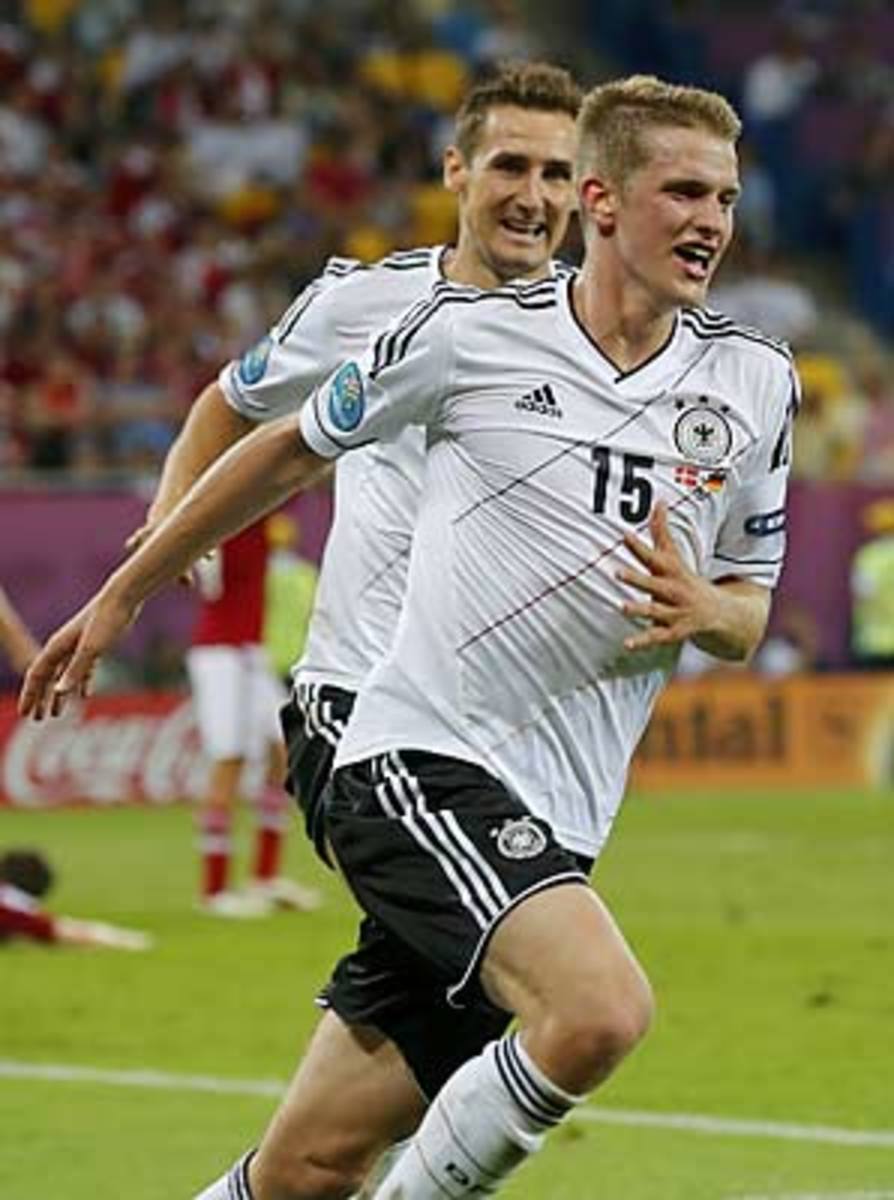Three thoughts: Denmark's game plan falls short against Germany
Here are three thoughts on Germany's 2-1 victory over Denmark in Group B:
1. Denmark could not change its game plan enough when it mattered. Morten Olsen's team made it incredibly hard for Germany, defending as they did with nine men in and around its own box for most of the time. Lukas Podolski's opener after 19 minutes seemed to change the balance of the tie, opening up more spaces for the Germans, but the lead only lasted for five minutes -- Bröndby's Michael Krohn-Dehli equalized from a corner with his second goal of the competition.
Denmark's goal brought the match back to square one. Germany pushed with neither conviction nor inspiration while the Danes waited for counterattacks. One such counter was near-perfectly executed shortly after the break: great, crisp first-time passing brought Jakob Poulsen (Midtylland) into position but the 28-year-old dragged his shot narrowly wide of Manuel Neuer's goal. The Danes created one more opportunity, when Nicklas Bendtner nearly volleyed a long ball and Holger Badstuber was lucky not to give away a penalty for shirt-pulling.
But that was the extent of their attacking prowess. Even when Portugal took the lead against the Netherlands, a result that meant that the Danes were going out with a draw themselves, Olsen's side played the same defensive waiting game. The lack of urgency can't have been by design so one must deduct that they simply didn't have any other options: without the injured Dennis Rommedahl on the wing, there was precious little creative input. Their defeat showed the practical limitations of having only one strategy: Denmark was so wedded to its containment game that it was unable to shift gear.
2. Germany needs to improve in the final third. It was another labored win in the end for Germany, not too dissimilar to the 1-0 win over Portugal in the opener. The problems for Löw's men could be partially explained by the Danes (ultimately self-destructive) sturdiness, but there were also failures of their own making.
Germany essentially played "position football" going forward: Müller, Podolski and Gomez tried to stretch the Danes by holding their positions without the ball. With the ball, they tried to overlap, change and create spaces for each other by going wide. The problem with that strategy was that it resembled a zero-sum game too many times. Germany changed positions without actually gaining any ground. Only Mesut Özil was able to get behind players, beating as he hid defenders with his technique in one v ones. The other attack-minded players, however, could only out-run the defenders, something that didn't happen all too often within the severely compressed space in the Danish half.
Against such a defensive side -- the Greeks won't be too different -- Germany needs more players who can find and make space by their self. They need someone like Dortmund's Mario Götze, for example. Or, alternatively, they can try to overload on the flanks. But the Danes have shown that the sort of straight-forward play that Podolski, Müller and Gomez specialise in is extremely difficult to pull-off if the opposition are parking a bus or two.
3. Lars Bender can be the solution to Germany's right-back problems. The 23-year-old from Bayer Leverkusen marked his competition debut with the later winner for Germany that settled the nerves. But his contribution was not just remarkable for his strike. Bender, a midfielder by trade, had such a solid game as a make-shift right-back in place of the suspended Jérôme Boateng that Löw might well stick with him a little longer throughout the tournament.
Whether he can be a long-term solution to a problem that's been dogging the nation team forever will probably depend on his development at club level, but Bender will remain an much-needed alternative for the right-back position for years to come.






